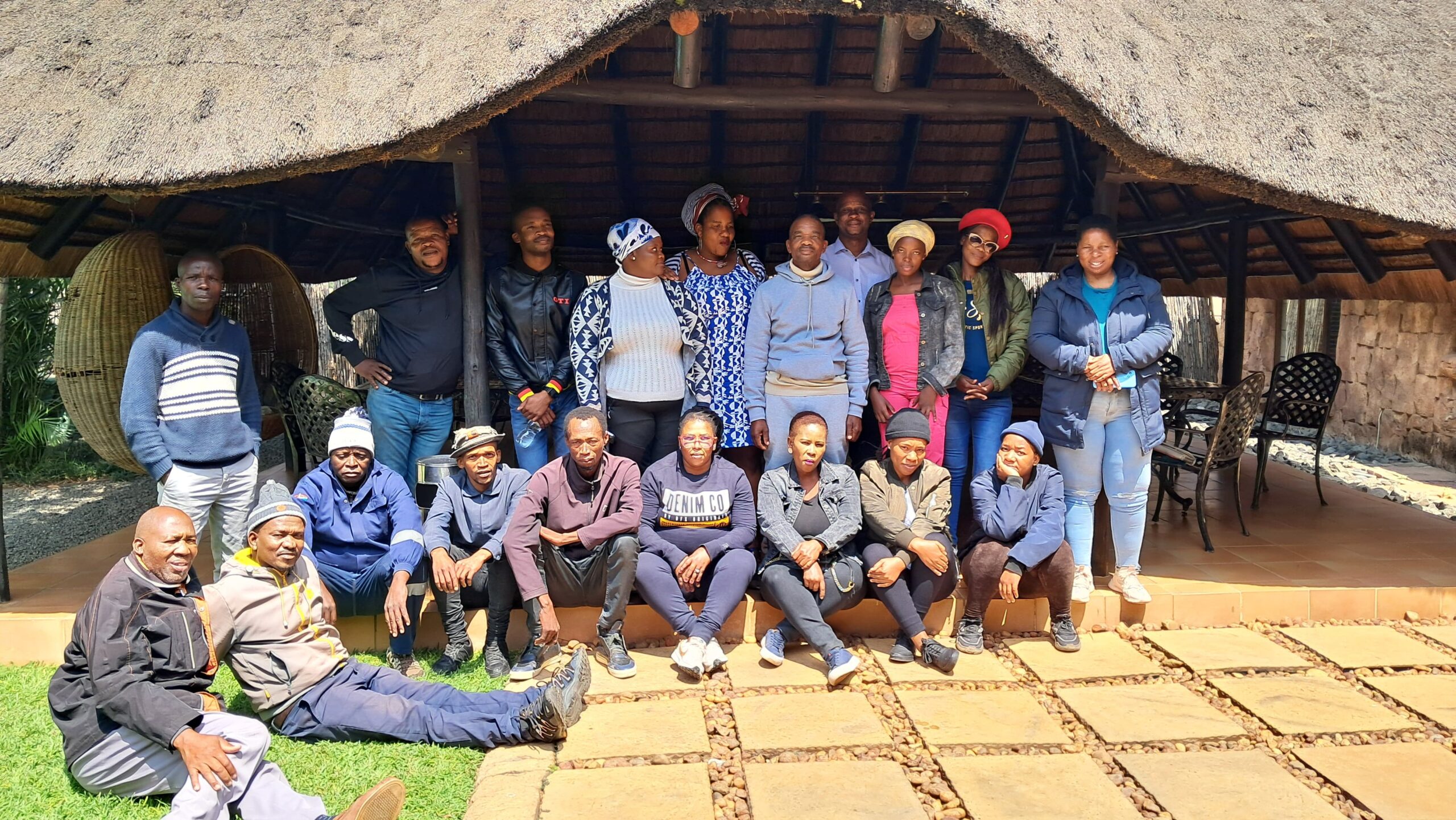Planact developed a methodology of working closely with individual settlements to build trust and working relationships with communities that over time led to a restructuring of capacity and resources.
It was through this strategic shift, that the Cluster of Community Agency approach, also referred to as the cluster approach, became a reality. Bringing together representatives from a range of informal settlements to form a cluster allowed Planact to further its social justice objectives and assist communities to self-organise, build awareness and knowledge of their rights and further engage with key stakeholders.
The reasoning behind the cluster approach is that it allows various communities facing similar challenges to collectively advocate for systemic change at the municipal level. This strategy leads to more significant outcomes compared to individual communities tackling issues in isolation.
Planact has continued to engage with informal settlements in Rustenburg’s North West province. These efforts have led to an expansion of the Cluster of Community Agency approach to include six informal settlement communities. This led to an increased footprint for the organisation in the Province.
Why Rustenburg?
Planact’s intervention strategy involves supporting communities build their agency and voice to continuously hold municipalities to account and uphold inclusivity.
The Rustenburg Cluster was born from a request for intervention by concerned residents who had witnessed the success of the cluster approach in the City of Ekurhuleni in Gauteng Province. Prior to providing support, in 2023, Planact visited different communities in Rustenburg and established that there are severe service delivery challenges which can be tackled through collaboration with the municipality.
The six founding communities that have pledged to collaborate in amplifying the voices of informal settlements for better living conditions in Rustenburg Local Municipality are Tshenolong, Enkanini, Paardekraal-Plot 14, Boitekong Ext 2, Boitekong Ext 14, and Damooi.
The Rustenburg Local Municipality, which is part of the Bojanala District Municipality under the North West Province has recently made headlines due to concerns over service delivery, as well as allegations of fraud and corruption that negatively impact its residents.
Planact has since attempted to engage the Rustenburg Local Municipality to introduce the organisation, explore the municipal structure and identify different directorates and units responsible for water, sanitation, roads and electricity.
An effort to collaborate with the municipality has commenced, and thus far, municipal officials have been receptive by providing contact information for various directorates to facilitate engagement. This posture is welcome!
Issues to tackle?
The Rustenburg cluster has pinpointed water and sanitation, roads, and electricity as their key focus areas. Given the persistent water crisis impacting large areas across the Municipality, especially in informal settlements, the cluster will prioritise water and sanitation, along with road repairs, as essential issues on their agenda.
Due to the high clay content of the soil of Rustenburg, roads in informal settlements are particularly impacted during the rainy season. Residents have reported that even regular shoes can become stuck in the mud when it rains! Children cannot attend school during rainy seasons because transportation cannot access them. This also affects emergency services, such as ambulances, police and fire-fighters, among others.
Residents report that while the mines supply dump soil to informal settlements to improve road infrastructure, they frequently must figure out how to grade and level the soil themselves. The municipalities are criticised for failing to assist in providing the necessary infrastructure to properly level the soil supplied by the mines in these informal areas.
Other Clusters?
In Mpumalanga, Planact actively supports two clusters. One cluster is in the Emalahleni Local Municipality and consists of 15 communities. This cluster was officially launched in May 2021 despite being operational for some years with the support from Planact. The other cluster is situated in the Steve Tshwete Local Municipality and comprises 5 communities.
In Gauteng, Planact supports two clusters located in the City of Ekurhuleni (CoE) and Johannesburg (CoJ). The CoE cluster consists of 22 communities while CoJ is made up of 10 communities.
Planact’s impact?
In the last 10 years Planact has reached out directly to roughly 90 communities (including the inner-city buildings). This is approximately equal to 200,000 households or 1,000,000 people. This is roughly 10% of the population of Johannesburg, Ekurhuleni and Emalahleni municipalities.
Currently, Planact works with more than 90 communities in Gauteng, Mpumalanga and North West Provinces under various projects such as Asivikelane, the Social Employment Fund as well as those under the Cluster of Community Agency.
